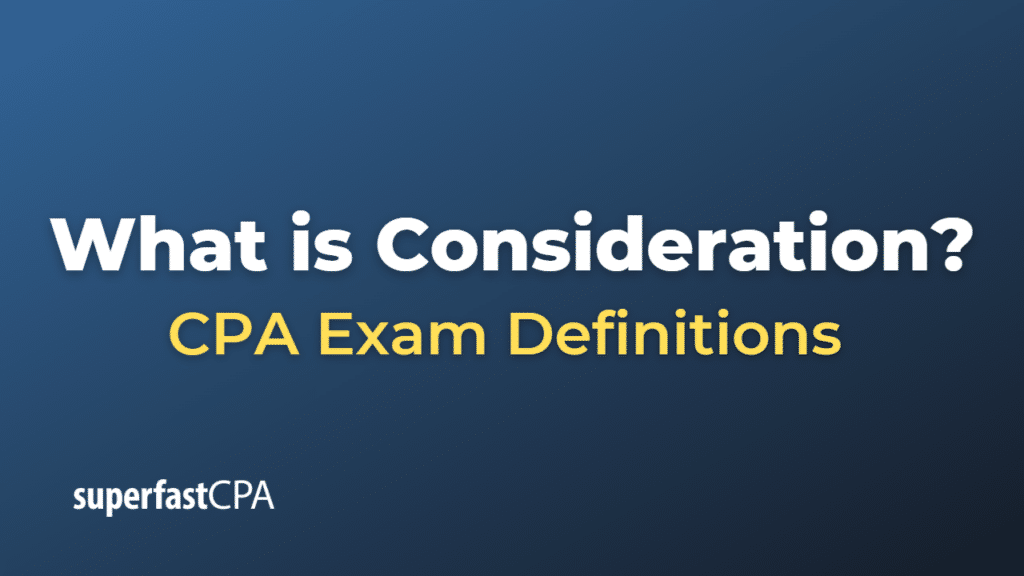Consideration
In legal terms, consideration is a fundamental concept in contract law that refers to something of value exchanged between parties involved in a contract. For a contract to be legally binding, there must be an exchange of consideration between the parties. Essentially, consideration is the “price” one party pays in return for the other party’s promise or commitment in the contract.
Consideration can take various forms, including:
- Money: One party may agree to pay a certain amount to the other party in exchange for goods, services, or a promise.
- Goods or services: One party may provide goods or services in return for the other party’s promise or commitment.
- A promise to do something: One party may commit to performing a specific action in exchange for the other party’s promise or commitment.
- A promise not to do something: One party may agree to refrain from doing something in return for the other party’s promise or commitment.
For consideration to be valid, it must meet certain criteria:
- Legality: The consideration must be legal and not involve any unlawful activities.
- Mutuality: Both parties must provide consideration in the contract. One-sided contracts, where only one party offers something of value, are generally not enforceable.
- Adequacy: Although courts typically do not examine the adequacy of consideration (i.e., whether the consideration is fair), consideration must have some economic value, even if it is minimal.
It is important to note that some jurisdictions have moved away from the traditional requirement of consideration and recognize alternative bases for enforceable contracts, such as the principle of “promissory estoppel” or the “doctrine of detrimental reliance.” In these cases, a contract may be enforceable even in the absence of consideration if one party has relied on the other party’s promise to their detriment.
Example of Consideration
Let’s consider a hypothetical example to illustrate the concept of consideration in a contract:
Imagine that Alice, a freelance graphic designer, agrees to create a logo for Bob’s new cafe. In return, Bob agrees to pay Alice a certain amount of money for her services. Here, a contract is formed between Alice and Bob, and the consideration for each party is as follows:
- Alice’s consideration: Alice promises to create a logo for Bob’s cafe. In this case, her services as a graphic designer represent the consideration she offers in the contract.
- Bob’s consideration: Bob promises to pay Alice a specific amount of money for her services. The money that Bob agrees to pay is the consideration he offers in the contract.
In this example, both parties exchange something of value (Alice’s services and Bob’s payment), and the contract is legally binding as long as it meets other necessary requirements, such as legality, capacity, and mutual assent.
If either Alice or Bob failed to provide consideration (e.g., if Alice agreed to create the logo without receiving any payment, or if Bob didn’t promise anything in return for Alice’s services), the contract would likely be considered unenforceable due to the lack of consideration.













